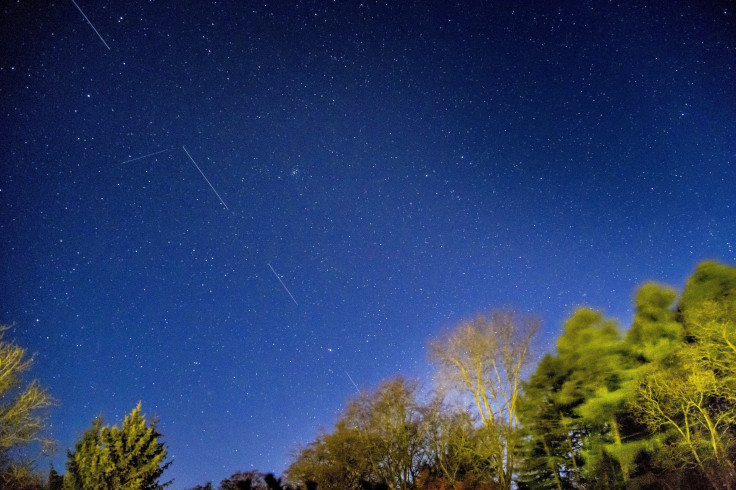Astrophysicist Avi Loeb Explores the Possibility of Proof for Extraterrestrial Life
In his recently published book, Loeb delves into the journey that led him to view the peculiar characteristics of 'Oumuamua as proof of extraterrestrial life.

The renowned astrophysicist and author of 'Extraterrestrial: The First Sign of Intelligent Life Beyond Earth' has sparked intrigue and debate with his bold assertions that an interstellar object, 'Oumuamua, might be a sign of extraterrestrial technology.
He holds the position of Frank B Baird Jr Professor of Science at Harvard, serves as the Director of the Institute for Theory and Computation at the Centre for Astrophysics, and leads the Galileo Project at Harvard.
However, his name was not widely recognised until an unusually shaped celestial object traversed our solar system in 2017.
Described by astronomers as possessing "extreme dimensions", it was determined to be of interstellar origin. Officially designated as 1I/2017 U1, it earned the moniker 'Oumuamua – a Hawaiian term meaning "scout" or "first distant messenger," pronounced akin to a child startled by a cow: 'Oh mooer mooer'.
In his recently published book, Loeb delves into the fascinating journey that led him to challenge conventional explanations for the peculiar characteristics of 'Oumuamua.
This cigar-shaped object exhibited unexpected acceleration as it traversed our solar system, prompting Loeb to question whether it could be more than just a natural celestial body.
The scientific community has long been hesitant to embrace the idea of extraterrestrial intelligence, preferring to attribute unusual phenomena to natural causes.
However, Loeb argues that the peculiarities surrounding 'Oumuamua demand a closer look. He contends that its acceleration cannot be solely explained by gravitational forces and suggests that a thin, flat object, propelled by sunlight, could be a plausible explanation.
The implications of Loeb's hypothesis are profound, challenging the traditional boundaries of astrobiology and prompting a reconsideration of the nature of cosmic objects.
The Harvard professor's assertions have not been without controversy, with some within the scientific community dismissing his ideas as speculative and lacking sufficient empirical evidence.
Loeb, undeterred by the scepticism, has been a vocal advocate for open-mindedness in the pursuit of knowledge.
In interviews and public appearances, he stresses the importance of considering unconventional possibilities in the quest for understanding the mysteries of the cosmos. His work has reignited the age-old question; are we alone in the universe?
Loeb perceives his critics as self-important and envious, characterised by a narrow and overly cautious perspective.
He holds a firm belief that sharing his research through blogging enhances public comprehension of the scientific process.
"Some individuals have remarked, 'It's the first time we see how science is done. Because we often hear just in press conferences the final result.' They [scientists] sit on a stage and convey the truth to the public, and the public finds that disconcerting because it seems like the work of an elite," he remarked.
Loeb contends that his blogs resemble detective stories, adding: "And the public loves detective stories. I mean, what's the problem?"
The search for extraterrestrial life has captured the human imagination for centuries, but scientific exploration has often been constrained by the limitations of technology and the vastness of space. Avi Loeb's approach challenges these limitations, urging scientists to adopt a more expansive perspective on the potential for intelligent life beyond our planet.
Loeb's theories also extend beyond 'Oumuamua. In his book, he explores the possibility of other extraterrestrial encounters, proposing the deployment of advanced technology to detect artificial signals from distant galaxies.
He envisions a future where humanity actively engages in the search for cosmic neighbours, armed with a newfound openness to the unknown.
While the scientific community remains divided on the validity of Avi Loeb's theories, there is a consensus that his work has ignited a renewed interest in the broader question of extraterrestrial life.
The prospect of finding definitive proof of intelligent beings beyond Earth remains elusive, but Loeb's pursuit serves as a catalyst for future exploration and encourages a more inclusive and imaginative approach to the mysteries that lie beyond our celestial doorstep.
As the alien hunter continues to scrutinise the cosmos for signs of extraterrestrial intelligence, the scientific community and the public alike await with bated breath, pondering the possibility that we may be on the brink of a paradigm-shifting discovery that could forever alter our understanding of our place in the vast cosmic tapestry.
© Copyright IBTimes 2024. All rights reserved.






